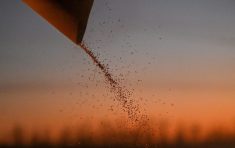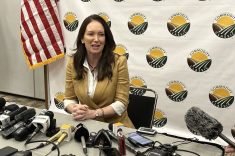Moscow | Reuters –– A list of Western products that Russia has banned could be changed according to the state of relations with the European Union and other countries, Russian Prime Minister Dmitry Medvedev said on Thursday.
Medvedev told a government meeting he had approved an order, initiated by President Vladimir Putin, to extend a ban on food imports from the West by one year. That came in response to an EU decision to extend sanctions on Russia over its role in the Ukraine conflict.
Read Also

U.S. grains: Soy futures post biggest monthly gain in nearly five years on China trade optimism
U.S. soybean futures climbed to a 15-month high and posted their biggest monthly gain in nearly five years on Friday following a rally fueled by the prospect of revived exports to China.
Later on Thursday, the government published the order, which officially extended the ban until Aug. 5, 2016.
The list of banned products remained the same and included fruit, vegetables, meat, poultry, fish, milk and dairy products.
Some Russian officials have previously said the list could be expanded to include flowers, chocolates and tinned fish.
“This list is of course not a constant. It can be changed depending on a number of things, including how our relations develop with our European partners and partners in a number of other countries,” Medvedev told a government meeting.
Russia has said it would respond to Western sanctions imposed over Moscow’s role in Ukraine in a “symmetrical” way, widening its so-called counter-sanctions only if the West extends its own.
Putin has praised the import ban for spurring agricultural growth and says Russia is weathering other sanctions, which have all but cut off banks and companies from global financial markets and oil companies from some co-operation.
— Reporting for Reuters by Darya Korsunskaya, Maria Kiselyova and Polina Devitt; writing by Elizabeth Piper.












